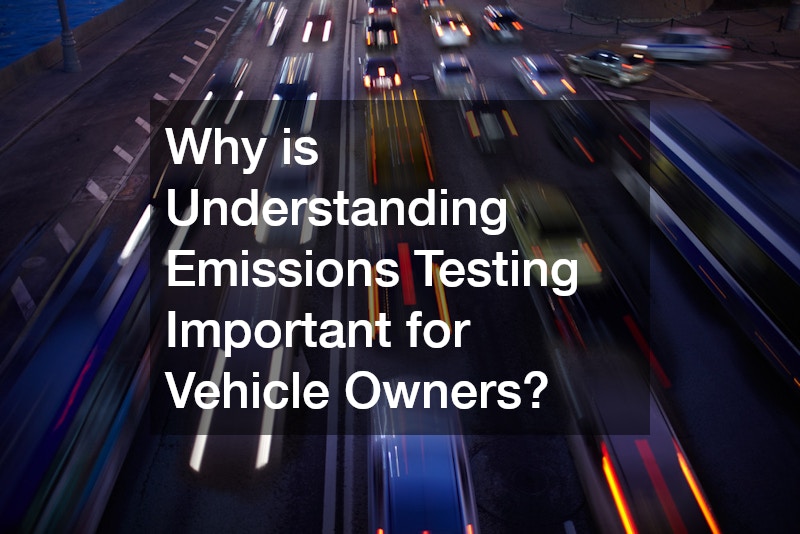Emissions tests are a crucial step in maintaining the health of our environment and ensuring your vehicle is compliant with regulatory standards. Before you head into the testing center, there are several important questions you should consider asking your mechanic. Being prepared with the right questions can make the difference between passing smoothly and facing unexpected complications.
What Are the Emissions Test Requirements in My State?
Each state has unique regulations when it comes to vehicle emissions testing. Understanding what these requirements are in advance can save you time and trouble. Some states mandate yearly tests, while others might have biennial requirements. Moreover, certain vehicles may be exempt, such as electric cars or those with classic car status. Knowing the frequency and specifics can help you schedule your test well in advance.
It’s also important to consider how these regulations apply specifically to your vehicle. For example, diesel-powered cars may undergo different testing procedures compared to gasoline cars. Furthermore, understanding what specific aspects of emissions are tested—like the catalytic converter, fuel cap, and on-board diagnostic systems—can help you assess your vehicle’s readiness. Inquiring with your local Department of Motor Vehicles or equivalent agency can provide precise information to guide your preparations. Checking their websites or talking to a representative can be invaluable resources.
In addition, being aware of recent changes in regulations or testing technologies could affect your preparation. States occasionally update their testing equipment to detect newer pollutants more effectively. These updates may impact what aspects of the vehicle are scrutinized. Insurance companies and local automotive news outlets also provide updates on how emissions testing procedures evolve. Keeping abreast of these changes ensures you’re never caught off guard at your next inspection.
How Can I Prepare My Vehicle for an Emissions Test?
Proper preparation of your vehicle can significantly influence the outcome of an emissions test. A critical yet often overlooked step is ensuring your vehicle is in optimal running condition before the test. Routine maintenance of components such as air filters, spark plugs, and oxygen sensors can aid in passing the test. Also, taking your car for a long drive beforehand can help the catalytic converter reach its optimal temperature for accurate emissions processing. This simple step can increase the likelihood of passing, especially for vehicles that are not frequently driven.
It’s also wise to perform a pre-test check yourself or have a trusted mechanic do it for you. Checking for visible issues like cracked fuel caps or noticeable exhaust leaks can prevent common failures. A thorough inspection should include diagnostic tests to check for error codes that might trigger a test failure. Many auto parts stores offer free on-board diagnostic (OBD) code scans to help identify and resolve issues before heading into the test. Investing this preliminary time might save you from the inconvenience of a failed test and a subsequent retest.
Finally, consider the age of your vehicle and how that might affect emissions. Older models often have higher emissions levels due to wear and tear on the engine and exhaust systems. Thus, an older car may require additional preparation or even component upgrades to meet current standards. For classic car enthusiasts, specific exemptions or modified testing may apply, which can also require specific preparations. Being proactive rather than reactive ensures that any vehicle passes the standard emissions test requirements smoothly.
Why is Understanding Emissions Testing Important for Vehicle Owners?

Understanding emissions testing is not merely a regulatory requirement but also a necessary step in contributing positively to the environment. Pollution from vehicles is a significant contributor to air quality degradation, which can have direct health impacts on the community. For the environmentally conscious driver, passing emissions tests reaffirms their commitment to reducing this form of pollution. There is also the added benefit of ensuring your vehicle runs more efficiently, often resulting in better fuel economy and reduced wear on the engine.
Furthermore, knowing what emissions testing entails helps vehicle owners maintain compliance with laws and avoid possible fines. It also provides insight into the potential need for vehicle upgrades, which can translate to savings over time. Compliance with emissions standards is more than a formality; it’s a proactive stance towards responsible vehicle maintenance. By keeping up to date with the essential questions and industry shifts, vehicle owners are empowered to make informed decisions. Staying informed on such laws can also reflect positively on insurance premiums, rewarding responsible and educated drivers.
Lastly, being knowledgeable about emissions testing can enhance the conversation between vehicle owners and automotive professionals. This understanding facilitates more productive dialogue about vehicle maintenance needs and overall performance improvements. A well-informed owner is better equipped to participate actively in these discussions and advocate for necessary measures. On a broader scale, as more individuals understand and comply with emissions regulations, the cumulative effect significantly aids in environmental conservation. Taking these emissions tests seriously is a small step towards a larger goal of global environmental stewardship.
